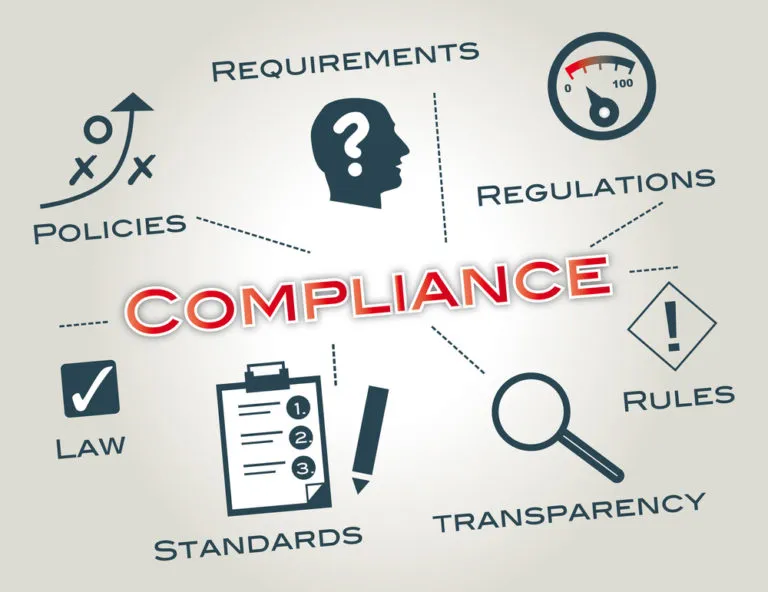Compliance and Regulatory Considerations in Mechanical Databases
Compliance and regulatory considerations are crucial aspects in managing mechanical databases, particularly in industries where adherence to standards and regulations is mandatory. Mechanical databases often contain sensitive information related to design specifications, manufacturing processes, and equipment performance. Therefore, ensuring compliance with relevant regulations is essential to safeguarding data integrity, security, and confidentiality.
One key area of concern is data privacy, especially with the increasing emphasis on regulations like the General Data Protection Regulation (GDPR) and other regional data protection laws. Mechanical databases may include personal information or proprietary data, and organizations must implement robust security measures to prevent unauthorized access, data breaches, or leaks that could lead to legal consequences.
Moreover, industries such as aerospace, automotive, and healthcare often have specific standards and regulations that govern the design, manufacturing, and operation of mechanical systems. Compliance with these standards is essential for ensuring the safety, reliability, and quality of products. Mechanical databases must be designed and managed in a way that facilitates adherence to industry-specific regulations, and organizations may need to regularly audit their data practices to ensure ongoing compliance.
In addition to privacy and industry-specific standards, there may be regulatory requirements related to data retention and documentation. Ensuring that mechanical databases comply with these regulations is essential for auditability, traceability, and accountability. Overall, integrating compliance and regulatory considerations into the management of mechanical databases is essential for mitigating risks, ensuring data integrity, and maintaining trust with stakeholders and regulatory bodies.
Compliance and Regulatory Considerations in Mechanical Databases
The management of mechanical databases in industrial settings is subject to a myriad of compliance and regulatory considerations. Adherence to these standards is imperative to ensure the safety, reliability, and ethical use of data within mechanical systems. Compliance measures serve as a safeguard against potential risks, legal ramifications, and reputational damage.
Mechanical databases often store sensitive information related to equipment specifications, performance data, and maintenance records. Regulatory frameworks such as ISO standards, industry-specific guidelines, and governmental regulations establish the criteria for data handling, storage, and accessibility. Compliance with these standards not only fosters a culture of responsibility but also mitigates the risk of data breaches or misuse.
In addition to data security, compliance considerations extend to environmental and safety regulations. Mechanical systems within industries are often subject to stringent safety standards to prevent accidents, environmental damage, or health hazards. Ensuring that mechanical databases adhere to these regulations is crucial for maintaining a safe working environment and avoiding legal penalties.
Continuous monitoring and auditing are essential components of compliance in mechanical databases. Regular assessments ensure that data management practices align with evolving regulatory requirements. In the event of changes in regulations, databases must be promptly updated to remain in compliance, requiring a proactive approach to staying informed about industry standards and legal obligations.
In summary, compliance and regulatory considerations in mechanical databases are paramount for upholding ethical standards, ensuring data integrity, and fostering a secure and safe industrial environment. Organizations that prioritize and invest in compliance efforts not only protect themselves from legal consequences but also contribute to the overall sustainability and responsible management of mechanical systems.
Regulatory Compliance in Mechanical Data Management
Regulatory compliance in mechanical data management is a multifaceted aspect of industrial operations that demands meticulous attention to detail. Various regulatory bodies and standards organizations establish guidelines to govern the collection, storage, and utilization of data within mechanical systems. Complying with these regulations is not only a legal requirement but also crucial for maintaining operational integrity and fostering trust among stakeholders.
One of the key areas of focus in regulatory compliance for mechanical data management is data security. Ensuring the confidentiality, integrity, and availability of data is essential. This involves implementing robust access controls, encryption mechanisms, and regular security audits to prevent unauthorized access and protect sensitive information stored within mechanical databases.
Furthermore, compliance standards often mandate the documentation of data handling processes and practices. Organizations must maintain comprehensive records detailing how data is collected, processed, and stored. This transparency not only aids in compliance audits but also serves as a valuable resource for internal quality control and process improvement.
In the context of mechanical systems, compliance may also extend to specific industry standards and safety regulations. For instance, organizations operating in the aerospace or automotive sectors must adhere to standards like AS9100 or ISO/TS 16949, which outline requirements for quality management systems in their respective industries. Demonstrating compliance with these standards is critical for gaining and retaining certifications, which can be essential for business operations and competitiveness.
In conclusion, regulatory compliance in mechanical data management is a dynamic and integral aspect of industrial practices. Organizations must stay abreast of evolving regulations, implement robust data security measures, and document their processes to ensure alignment with legal requirements. By prioritizing regulatory compliance, organizations not only mitigate risks but also enhance their overall operational efficiency and credibility.
Data Governance and Compliance in Industrial Databases
Data governance and compliance are foundational principles in the management of industrial databases, ensuring that data is treated as a valuable asset and managed in a responsible, ethical, and legally compliant manner. In the context of industrial databases, which often contain critical information for decision-making and operations, establishing robust data governance practices is essential for maintaining integrity and meeting regulatory requirements.
Data governance encompasses the policies, procedures, and standards that dictate how data is managed throughout its lifecycle. It involves defining roles and responsibilities, establishing data quality standards, and implementing controls to ensure data accuracy, consistency, and reliability. In industrial databases, effective data governance is particularly important due to the impact that data quality has on operational processes and decision outcomes.
Compliance with regulations is a key component of data governance in industrial databases. Various industries, such as pharmaceuticals, energy, and manufacturing, are subject to specific regulations governing data management practices. For example, the pharmaceutical industry may need to comply with Good Manufacturing Practice (GMP) regulations, while the energy sector may need to adhere to cybersecurity standards. Data governance frameworks must be designed to align with these industry-specific regulations to ensure legal compliance.
Data privacy is another critical consideration in data governance and compliance. Industrial databases often contain sensitive information, and regulations like the General Data Protection Regulation (GDPR) mandate stringent measures to protect individual privacy. Organizations must implement data anonymization, encryption, and access controls to safeguard sensitive information and comply with privacy regulations.
In conclusion, data governance and compliance are inseparable in the realm of industrial databases. Establishing a robust data governance framework not only enhances data quality and decision-making but also ensures adherence to legal requirements. By integrating compliance considerations into data governance practices, organizations can build a solid foundation for responsible and ethical data management in industrial settings.
ISO Standards for Mechanical Database Systems
The International Organization for Standardization (ISO) has developed a set of standards that play a crucial role in guiding the design, implementation, and maintenance of mechanical database systems. ISO standards provide a framework for organizations to establish best practices, ensuring consistency, reliability, and interoperability in the management of mechanical data.
ISO 15926, for instance, focuses on the integration of process plant data, allowing for standardized representation and exchange of information in the engineering and operation phases of a facility. This standard enhances collaboration and data consistency across different stages of a mechanical system’s lifecycle.
ISO 10303, commonly known as STEP (Standard for the Exchange of Product Data), provides a standardized approach to representing and exchanging product data throughout its lifecycle. In mechanical database systems, adherence to ISO 10303 ensures compatibility and interoperability, facilitating seamless data exchange between different software applications and systems.
ISO 55000 series outlines standards for asset management, emphasizing the importance of data in maintaining and optimizing physical assets. In the context of mechanical systems, compliance with ISO 55000 can enhance data-driven decision-making, leading to improved reliability, performance, and lifecycle management.
The implementation of ISO standards in mechanical database systems fosters a culture of quality, consistency, and continuous improvement. Organizations that embrace these standards benefit from enhanced data integrity, streamlined processes, and compatibility with international best practices, ultimately contributing to the efficiency and effectiveness of their mechanical systems.
Compliance with Industry-Specific Regulations in Databases
Compliance with industry-specific regulations is a critical consideration in the management of databases, particularly in sectors such as healthcare, finance, and manufacturing, where stringent guidelines govern data handling practices. Ensuring compliance with these regulations is not only a legal requirement but also essential for maintaining trust, mitigating risks, and safeguarding sensitive information.
In the healthcare industry, for example, databases containing patient records must adhere to regulations such as the Health Insurance Portability and Accountability Act (HIPAA) in the United States. Compliance involves implementing robust security measures, access controls, and audit trails to protect patient confidentiality and prevent unauthorized access to medical information.
Financial institutions are subject to regulations like the Payment Card Industry Data Security Standard (PCI DSS), which mandates secure handling of credit card data. Compliance in financial databases requires encryption, regular security assessments, and strict access controls to prevent unauthorized transactions and protect sensitive financial information.
Manufacturing industries may need to adhere to standards such as the International Traffic in Arms Regulations (ITAR) for defense-related data or specific quality management standards like ISO 9001. Compliance in these cases involves implementing controls to ensure the security, traceability, and quality of data within mechanical databases.
Effective compliance with industry-specific regulations necessitates a comprehensive understanding of the specific requirements relevant to the sector. Organizations must conduct regular assessments, update processes to align with evolving regulations, and educate personnel to ensure a culture of awareness and responsibility regarding data compliance.
Best Practices for Ensuring Data Compliance in Mechanical Applications
Ensuring data compliance in mechanical applications is a multifaceted process that involves adopting best practices to meet regulatory requirements, protect sensitive information, and optimize operational efficiency. By implementing robust strategies, organizations can navigate the complexities of data compliance in mechanical applications effectively.
- Understand Regulatory Landscape: Stay informed about industry-specific regulations and standards relevant to mechanical applications. Regularly update compliance policies to reflect any changes in regulatory requirements, ensuring that the organization remains aligned with current standards.
- Implement Access Controls: Restrict access to sensitive data within mechanical databases through the implementation of access controls. Role-based access ensures that only authorized personnel have the appropriate permissions, reducing the risk of unauthorized data manipulation or breaches.
- Data Encryption: Utilize encryption mechanisms to protect data both in transit and at rest. Encryption adds an extra layer of security, making it difficult for unauthorized individuals to decipher sensitive information even if they gain access to the database.
- Regular Audits and Monitoring: Conduct regular audits of the mechanical database to identify any irregularities or potential compliance violations. Implement monitoring systems that provide real-time alerts for suspicious activities, enabling prompt responses to security incidents.
- Data Lifecycle Management: Develop a comprehensive data lifecycle management strategy. This includes defining procedures for data creation, storage, archiving, and eventual disposal. Proper data disposal procedures are especially important to prevent unauthorized access to outdated or obsolete information.
- Employee Training and Awareness: Ensure that personnel are well-versed in data compliance policies and procedures. Regular training sessions and awareness campaigns help cultivate a culture of responsibility and vigilance regarding data security among employees.
- Incident Response Plan: Develop and regularly update an incident response plan to address any data breaches or security incidents promptly. Having a well-defined plan in place minimizes the impact of security breaches and facilitates a swift and coordinated response.
- Data Privacy Measures: Implement measures to protect individual privacy, especially if the mechanical database contains personal or sensitive information. Adherence to data privacy regulations, such as GDPR, requires organizations to prioritize privacy considerations in their data management practices.
- Documentation and Record-keeping: Maintain thorough documentation of data compliance processes and practices. This documentation serves as evidence of the organization’s commitment to compliance and is invaluable during audits or regulatory inspections.
- Regular Risk Assessments: Conduct regular risk assessments to identify potential vulnerabilities and areas of improvement in the data compliance framework. Proactively addressing risks helps prevent compliance violations and strengthens the overall security posture of the mechanical applications.
In conclusion, adherence to best practices for ensuring data compliance in mechanical applications is essential for organizations seeking to navigate the regulatory landscape, protect sensitive information, and optimize the performance of their mechanical databases. Implementing a holistic approach that combines technical measures, employee training, and proactive risk management contributes to a robust and resilient data compliance framework.








